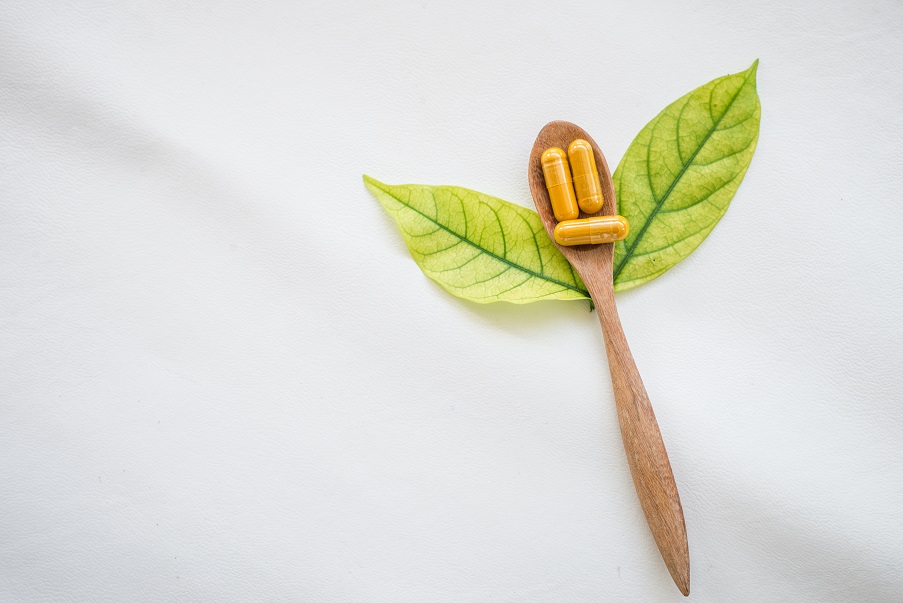Arthritis—The Role of Natural Health Products
Arthritis refers to any number of conditions causing joint pain, swelling, and
stiffness resulting in disability. According to the Public Health Agency of Canada,
arthritis affects 16% of Canadians over the age of 15. There are several different
types of “arthrides,” including osteoarthritis (“wear-and-tear” arthritis), rheumatoid
and other types of autoimmune arthritis, juvenile arthritis, systemic lupus
erythematosus (SLE), and gout. The pain and joint damage associated with
arthritis are caused by the presence of uncontrolled inflammation and
degeneration of the cartilage. Therefore, the goal of treatment is to reduce
inflammation and promote joint healing. Many people depend on pain killers
and other medications to function normally; however, there are a variety of
natural therapies that offer relief from chronic pain.
Dietary factors can be a source of inflammatory triggers. Alterations in digestive
function, specifically the development of “leaky gut,” have been identified in
many chronic inflammatory conditions, including fibromyalgia, juvenile arthritis,
lupus, and ankylosing spondylitis (AS). When gut-barrier function is impaired,
food proteins that are not normally allowed to pass across into the blood may
do so, triggering an immune reaction and the development of immune
hyperreactivity. Studies of patients with fibromyalgia suggest higher rates of
gluten intolerance, and studies of patients with rheumatoid arthritis show
increased levels of food-specific antibodies present in their intestinal fluid.
The involved foods include proteins from cow’s milk (alpha-lactalbumin,
beta-lactoglobulin, casein), cereals, hen’s egg (ovalbumin), cod fish, and
pork meat. Plants from the nightshade family (potatoes, tomatoes, peppers,
eggplant) as well as other inflammatory foods have been implicated in
osteoarthritis.
Although it may seem counterintuitive, exercise has been shown to improve
the pain and stiffness associated with osteoarthritis. Exercise can help with
achieving a healthy weight, and minimizing the weight-bearing stress on the
joints. Exercise simultaneously improves the strength of the muscles
supporting the joint, and improves the flexibility and range of motion of
noncontractile tissues such as tendons and ligaments that are also involved
in supporting joints. A recent study, for instance, found that the use of an
exercise program for the hip significantly reduced pain among women with
osteoarthritis of the hip. Results showed that pain declined over 30% from
baseline, while joint function and health-related quality of life improved
slightly. Leg extensor (a muscle group) strength increased by 20%, and
hip extension range of motion increased by 30%.
Fish Oils
Anti-inflammatory supplements also have a role to play in managing arthritis.
The omega-3 fatty acids found in fish oil, eicosapentaenoic acid (EPA) and
docosahexaenoic acid (DHA), are powerful anti-inflammatory nutrients. EPA
and DHA block the proinflammatory action of the cyclooxygenase (COX)-2
enzyme and the lipoxygenase (LOX) enzyme. These enzymes metabolize fats
in the cell membrane to inflammatory chemicals in the body. COX-2
metabolizes arachidonic acid (AA) into proinflammatory prostaglandins (PGE2)
and leukotrienes. However, when COX-2 uses EPA as its fuel, it produces anti-
inflammatory chemicals such as PGE3 and LTB5. In this way, fish oil has similar
effects as nonsteroidal anti-inflammatories (NSAIDS, e.g. aspirin), but without
the gastrointestinal side effects.
NEM®
Natural eggshell membrane (NEM®) has been shown to improve joint pain
and stiffness associated with osteoarthritis. NEM is a proprietary extract with
pilot studies and a randomized controlled trial demonstrating sizeable
improvements as early as seven days. Supplementation with 500 mg of NEM
for eight weeks was shown to reduce knee pain and stiffness compared to
placebo at all time points. After only 10 days, pain was reduced 15%
compared to placebo.
Boswellia
An Ayurvedic herb also known as frankincense, it has been shown to reduce
inflammation associated with osteoarthritis of the knee. Boswellic acids inhibit
5-lipoxygenase (5-LOX), the enzyme responsible for the production of
proinflammatory leukotrienes from arachidonic acid. In clinical trials, boswellia
extract has repeatedly been shown to improve pain and functional ability as
early as seven days.
Curcumin
An extract of turmeric, it has been shown to decrease inflammatory chemicals
in patients with osteoarthritis. Administration of curcumin to 100 patients with
osteoarthritis resulted in significant decreases in a series of inflammatory
markers including interleukin [IL]-1β, IL-6, soluble CD40 ligand [sCD40L],
soluble vascular cell adhesion molecule (sVCAM)-1, and erythrocyte
sedimentation rate [ESR]. There were also significant improvements in joint
pain, stiffness, and range of motion, as well as improvements in the distance
that patients were able to walk on a treadmill test.
Probiotics
In patients with rheumatoid arthritis (RA), supplementation with probiotics
may also be helpful. In a 2018 meta-analysis of four randomized controlled
trials including 153 participants, results showed a small decrease in C-
reactive protein (CRP), an inflammatory marker, as well as in ratings of
disease activity. Other randomized trials have shown that probiotic
supplementation was able to reduce the disease activity score of 28 joints
as well as CRP protein, insulin levels, and measures of blood glucose control.
Vitamin D
Since it is an immune modulator, vitamin D may be a helpful addition for
patients with arthritis. This is especially the case in patients with rheumatoid
arthritis who may be on steroidal immunosuppressant medications, since
these can negatively affect bone health. A recent study found that
supplementation with vitamin D alongside standard medications
(glucocorticoids or steroids and methotrexate) resulted in significantly better
overall health as reported by patients. Another study in patients with
osteoarthritis (wear-and-tear arthritis) found that sufficient vitamin D status
was associated with significantly less loss of tibial cartilage volume, less
increase in effusion-synovitis volume, and less loss of Western Ontario and
McMaster Universities Arthritis Index (WOMAC) physical function, compared
with those patients who had insufficient vitamin D status.

Natural therapies can help keep you healthy, pain-free,
and active.
 Philip Rouchotas, MSc, ND
Philip Rouchotas, MSc, ND
Well-known in the community as a naturopathic doctor,
associate professor, and editor-in-chief of Integrated
Healthcare Practitioners.

 Stores
Stores




